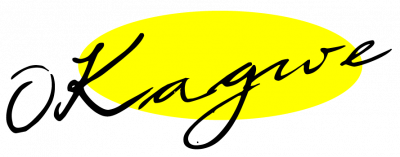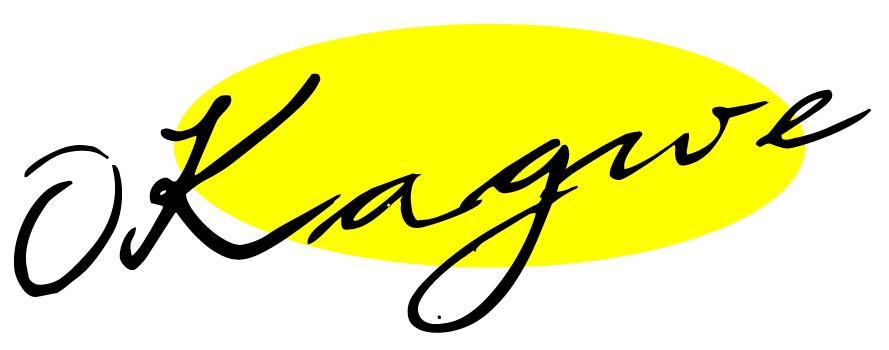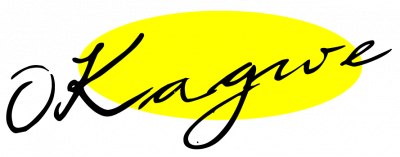We agreed in my previous post that the 1st time people organised themselves so that they had a leader, they formed a government. From the African plains to Europe’s highlands, the dry East and the tropical South West, the purpose of government was to organise people and protect their interests by making laws and policies.
All over the world, people formed different types of governments, with the oldest monarchies. In this post, I attempt to help you understand the 5 major forms of government that the world has.
a. Absolute Monarchy/Autocracy.
If you live on Earth, you have probably heard of King of Wakanda from the movie Wakanda, or King Arthur in the tv show Merlin or King of the Iron throne in the popular Game of Thrones. 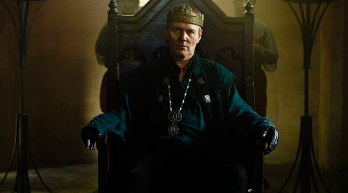 If you like you mind African, then you know the perverted King Mswati or even Haile selassie of Ethiopia. In Kenya, we had Kingdoms like the Wanga, and many other chiefdoms before the coming of the muzungu.
If you like you mind African, then you know the perverted King Mswati or even Haile selassie of Ethiopia. In Kenya, we had Kingdoms like the Wanga, and many other chiefdoms before the coming of the muzungu.
In all these empires, kingdom and chiefdoms, supreme power power to tell people what to do or what not to do lay in one person’s hands. This person was usually an emperor, empress, king, queen, or chief. These powerful people made all the decisions for, or on behalf of a society. They had powers to pass laws, influence taxes, fight wars etc. They could do whatever they pleased. Some of them like King Louis XVI of France and his wife Marie Antoinette used to spend money collected from taxes af in lavish parties and expensive perfumes until they drove the country into economic turmoil. Other times, the king would come to your house and marry off your beautiful daughter to his relatives or himself without your consent.
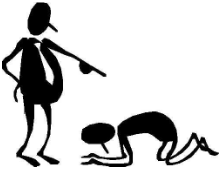
Power was usually hereditary, passed from father to eldest son. A king felt less of himself if they failed to bear themselves a son, because this would mean the end of his lineage in power. Social stratification was a major characteristic of monarchies. You either had to be a noble or a peasant. Peasants were subjects of the noble families. If you lived in those days, everything you owned was basically the king’s – even your life was somehow the doing of the king.
Peasants, who were the majority, were not happy with how the king and his fellow noblemen treated them. This caused catastrophic revolutions such as the French revolution of the late 17th and early 18th century. The end of Monarchy marked the beginning of Democracy.
a.a. Constitutional Monarchy.
When people had had enough of the oppression by the monarchs, they decided that time had come for their voices to be heard. They opposed the powerful rulers with revolutions. In an attempt to reach an understanding, the monarchs gave in to the requests of the peasants. Such requests were contained charters such as the the Magna Carta of June 15th 1215, and what we have now, constitutions. 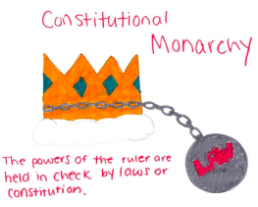 These laws promoted equality for everyone in the country, and set up universal rights and freedoms to be enjoyed by all citizens of the state. Such rights for example made sure that kings would not just draft young men into the army because he wanted to fight a personal war, or impose his ridiculous rules on people just because he was king.
These laws promoted equality for everyone in the country, and set up universal rights and freedoms to be enjoyed by all citizens of the state. Such rights for example made sure that kings would not just draft young men into the army because he wanted to fight a personal war, or impose his ridiculous rules on people just because he was king.
Other people did away with monarchs altogether while others retained them, like the UK. The role of these monarchs is not as it used to be in the past. Their powers are limited by these documents (constitutions). While they might be the heads of state (a ceremonial role), they are not the heads of government. In the UK for instance, the queen is head of state but the PM is the head of government. In Kenya, the president is both the head of state and government.
b. Dictatorship.
Dictators are people who take power by force. 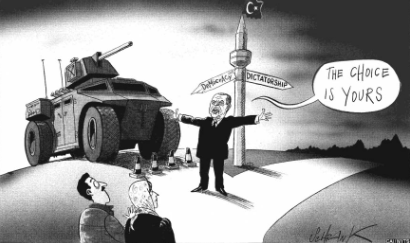 They impose themselves on the society, and are not elected by the people. A dictator is usually one person. They make all the decisions of the society, without consideration of what the society wants.
They impose themselves on the society, and are not elected by the people. A dictator is usually one person. They make all the decisions of the society, without consideration of what the society wants.
Other dictators take power forcefully with the will to make a positive impact on the society. Most of the times, benevolent dictators rise from crisis with the aim of restoring peace and calm as in the case of Paul Kagame of Rwanda.
c. Oligarchy.
In every country, there is a group of people who are the wealthiest and consequently most powerful. 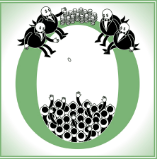 They could be a family, a group of families, business people, former leaders etc.These people have hands in almost every sector in a countries economy.Most of the times, these ‘elite’ group share similar ideas and ideologies. They have a shared understanding.
They could be a family, a group of families, business people, former leaders etc.These people have hands in almost every sector in a countries economy.Most of the times, these ‘elite’ group share similar ideas and ideologies. They have a shared understanding.
Being this wealthy and powerful, they have influence. They influence how government runs to meet their interests first, and those of society second. It does not matter whether society has approved of them, their will be done. Kenya is an oligarch. We have 7 families which include the Kenyatta’s, Nyaga’s, Moi’s who control the country, in one way or another.
d. Democracy.
Democracy begins when autocracy (monarchies, dictatorships, oligarchies) ends. An example is France after the French Revolution. There are two types of democracies as follows: 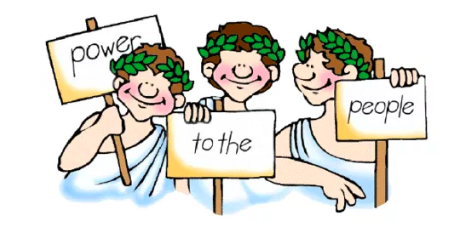
Direct Democracy.
In Direct democracy, every person in is involved in the decision making of the society. Each and every person votes on laws and policies themselves. If 9 people agree and 1 person disagrees, then the decision is made based on the many people who agreed. It’s what you have heard people say, Majority wins. Question is, what happens when it’s a 50/50 decision?
Direct democracy works well when it’s only a small group of people involved. An example of direct democracy is when we vote for the president. Each one of us casts a vote of our choice and the result is based on the majority votes.
Indirect Democracy/Representative Democracy.
Here, people of a society choose a few people to represent them in government. People select a person to take take their ideas and pleas to the government. Such people are like MPs, women representatives and MCAs. The selected people represent the views of the larger society, since we an all not fit in parliament. Society believes in the abilities of these representatives. In essence, these representatives should be the best minds in that society. Take a minute. Look at your MP. I understand how foolish you feel. Anyway..
If the elected representatives prove to be dumb and insensitive, the people of the society can remove them and put new people there. So, people choose leaders to create and pass policies on their behalf. Representative democracy is best for large groups of people.
An example of a democracy is Kenya.
Republic.
A republic can be argued as a form of a democracy. In a republic the minority are protected from the tyranny that may be the majority. Republics have documents like the constitution. The constitution contains the bill of rights. The bill of rights is a list of the most important rights to which a citizen of a country is entitled to. 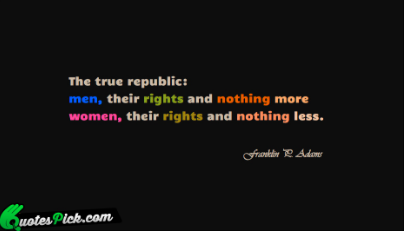 Such rights are not influenced by the social status of any person in that country – they cut across every one. While the majority still have it their way, fundamental rights and freedoms of every citizen are protected.
Such rights are not influenced by the social status of any person in that country – they cut across every one. While the majority still have it their way, fundamental rights and freedoms of every citizen are protected.
Assuming Kenya was a theocratic nation, with christians as the majority faith. Kenyans then decide that they shall not tolerate any Muslims in the country. They decide to kick them out. That’s democracy. The majority people (christians) have won, but at the expense of the minority (muslims). However, because Kenya is a republic, it is a secular nation. It has freedom of religion and freedom from religion. So when majority christians decide that minority muslims are no longer welcome, government cannot really kick them out – unless their stay here puts the lives of everyone else in grave danger.
e. Anarchy.
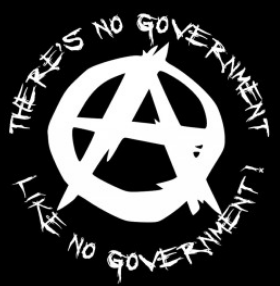 Anarchists are people who do not see the need for a government. They believe society would be a better place without a group of often ‘greedy’ people taking advantage of the rest of society to make themselves wealthy.In an anarchy situation, society is not bound by the laws out in place by government. Anarchists believe that instead of government being the central rule, society should have independent institutions that perform the functions of government. Refer to this video to understand how anarchists believe the world without governments should be.
Anarchists are people who do not see the need for a government. They believe society would be a better place without a group of often ‘greedy’ people taking advantage of the rest of society to make themselves wealthy.In an anarchy situation, society is not bound by the laws out in place by government. Anarchists believe that instead of government being the central rule, society should have independent institutions that perform the functions of government. Refer to this video to understand how anarchists believe the world without governments should be.
When talking about the types of government, ask yourself, who has the power? Is it one person? A group of people? Or just no one? From the above understanding, you can tell that Kenya is a democracy, republic and an oligarch.
I am seeking to know the 7 families that are said to be the Kenyan oligarchs. Use the comments section below and let’s engage!
